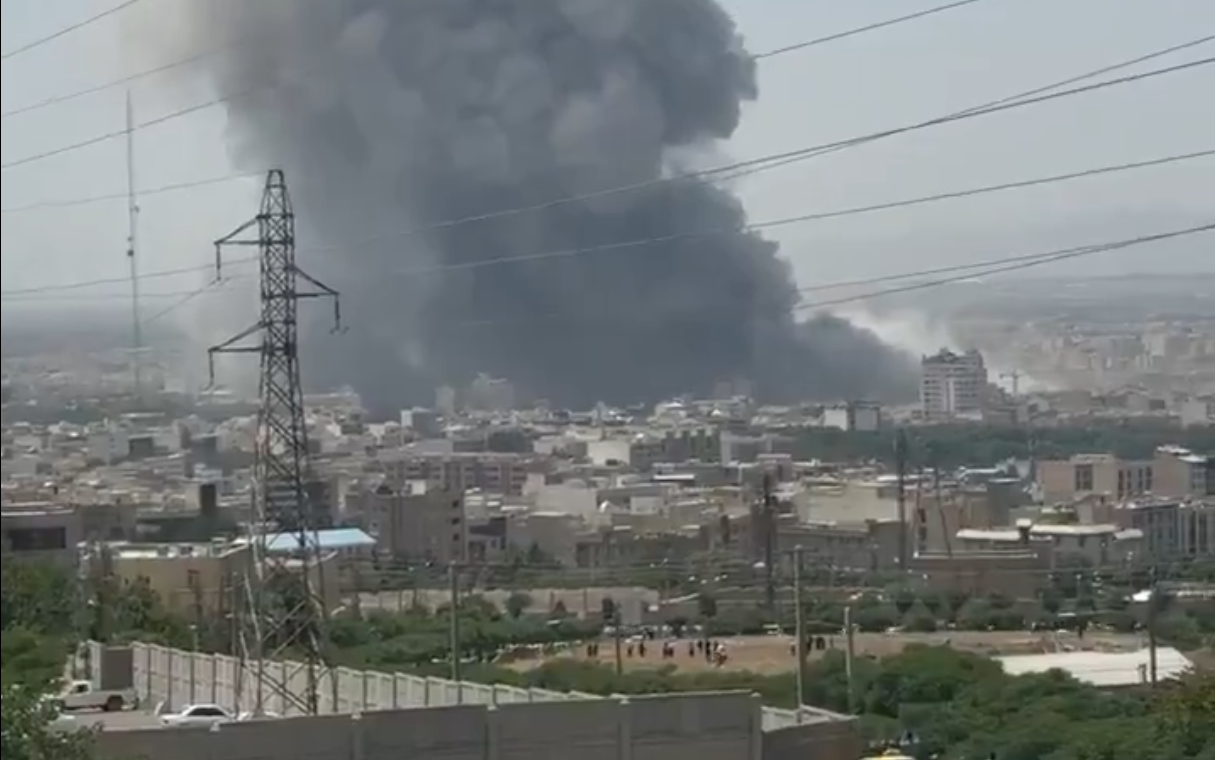Iran has launched missile attacks on U.S. military installations in Qatar and Iraq in retaliation for American airstrikes on its nuclear sites, sharply intensifying hostilities in the region.
In a dramatic show of force, residents of Doha, Qatar’s capital, watched as missiles streaked through the night sky. Interceptors responded swiftly, striking down at least one projectile above the city. The attack targeted the Al Udeid Air Base, a key U.S. military hub, which hosts the forward headquarters of U.S. Central Command.
Iranian state television broadcast the strikes live, describing them as “a mighty and successful response” to what it called “America’s aggression.” Simultaneously, Iranian missiles also hit the Ain al-Assad base in western Iraq, according to Iraqi security sources.
The Iranian assault followed a warning from President Masoud Pezeshkian, who stated on social media, “We did not initiate this war, but we will not leave the invasion of Iran unanswered.” The missile launches came shortly after Qatar temporarily closed its airspace in anticipation of potential hostilities.
The situation has escalated dramatically since the United States, using stealth bombers, struck three of Iran’s key nuclear facilities on Sunday—prompting concerns of a broader regional conflict. Iran has since vowed further retaliation, accusing the U.S. of crossing a “very big red line.”
Earlier Monday, Israeli forces continued their own campaign, striking symbolic and military targets inside Tehran, including the notorious Evin Prison and the headquarters of Iran’s security forces responsible for suppressing recent protests. Israel says its aim is not regime change but to pressure Iran to halt its nuclear program.
Read Also
Iran responded with renewed missile and drone barrages on Tel Aviv, Haifa, and Jerusalem, as part of what it calls “Operation True Promise 3.” While no major injuries were reported in Israel’s latest wave of attacks, the psychological toll of ongoing bombardment continues to rise.
The death toll from the conflict is mounting. According to Human Rights Activists, an independent watchdog group, Israeli strikes in Iran have killed at least 950 people, including hundreds of civilians and members of Iran’s security forces.
Meanwhile, fears surrounding Iran’s nuclear capabilities have been reignited. U.S. and Israeli strikes targeted key enrichment facilities including Fordo and Natanz. While Iran claims to have removed nuclear materials beforehand, the International Atomic Energy Agency (IAEA) says it is monitoring the situation closely.
As tensions spiral, global powers including Russia have begun calling for calm. After meeting with Iranian officials in Moscow, Russian President Vladimir Putin condemned the strikes by the U.S. and Israel as “unprovoked aggression” and urged diplomatic solutions.





